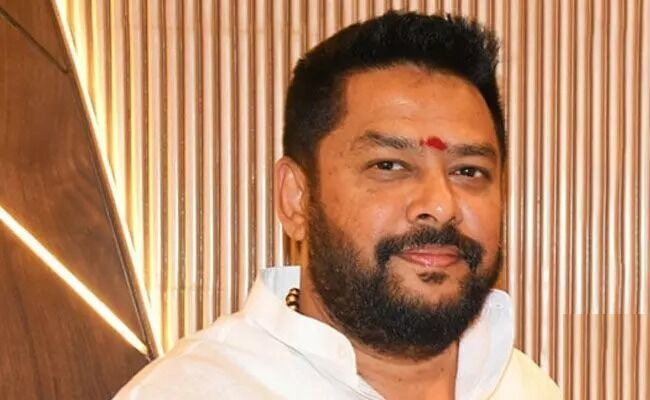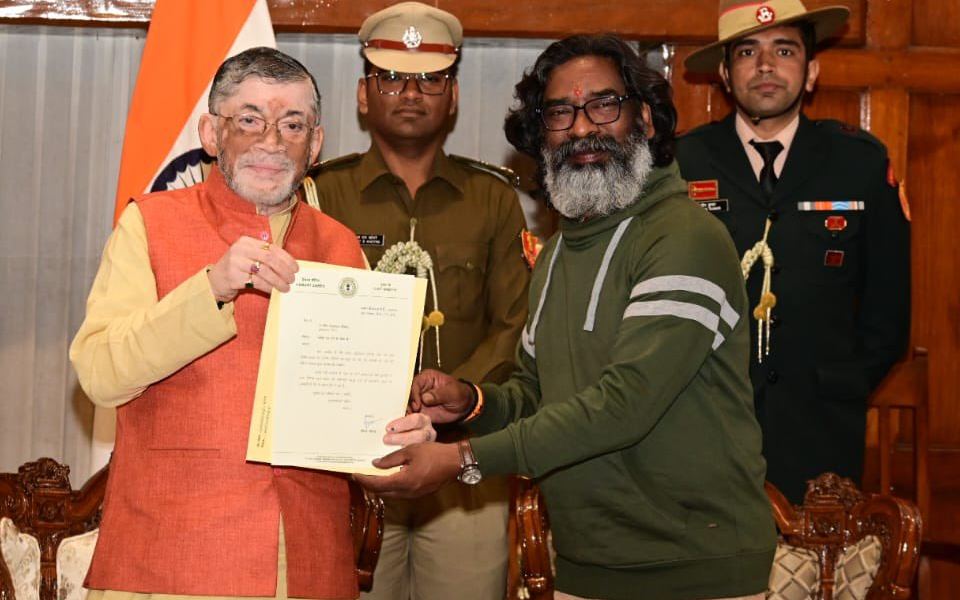Bengaluru (PTI): Former Karnataka Minister B Nagendra, who walked out of the jail on Wednesday, alleged that he was pressurised by the ED to name Chief Minister Siddaramaiah and his deputy D K Shivakumar in the multi-crore scam in Karnataka Maharshi Valmiki Scheduled Tribes Development Corporation.
He also charged the ED (Directorate of Enforcement) with arresting him under pressure from the BJP as part of a conspiracy to destabilise the Congress government.
A special court here on Monday granted bail to the Congress MLA, who was arrested by the ED in connection with the scam.
"The BJP that is governing the country is conspiring to somehow destabilise the Congress governments wherever in power. For three months, I was harassed by the ED with the intention to destabilise our government. Despite no role of mine in the Valmiki scam, all of a sudden I was arrested. On pressure from the BJP central leaders, ED tried to destabilise the state government by arresting me," Nagendra said.
Speaking to reporters after being released from the jail, he said, he was pressured to name Siddaramaiah and Shivakumar in connection with the scam.
"I rejected it saying that when my role itself is not there (in the scam), where is their (CM & DCM) role? Where is the government's role? There is no connection between the scam that has taken place in the bank and the government. Despite that, BJP both in the state and at the Centre conspired, as they have done in the 'MUDA' scam," he said.
Asked about the context where he was pressured to name the CM, the former minister said, "it was in connection with the Finance Department (held by the CM)."
"Without any written orders, without any orders money was transferred. At the time when there was a code of conduct (during Lok Sabha polls), bank officials without even checking KYC have done it. It is not a state government scam, it is a bank scam. Neither the chief minister nor I as the concerned minister was aware of it. Unnecessarily, ED is trying to link his (CM) name to it," he said.
Nagendra had resigned as the Scheduled Tribes Welfare Minister in June following allegations of his involvement in the scam.
The ED had recently said that Nagendra had been identified as the primary accused and mastermind behind the scam, allegedly orchestrating it with the help of 24 others.
The ED had in July arrested Nagendra under the provisions of the Prevention of Money Laundering Act (PMLA), and also five other key accused during the investigation.
"Only leaders of other parties like -- Kejriwal (former Delhi CM Arvind Kejriwal), Sisodia (Manish Sisodia), Kavitha (Telangana MLC and Bharat Rashtra Samithi leader) -- are being arrested by the ED, but we have faith in the judiciary as it is in no one's clutches, that's the reason I have got bail today," the Congress leader said.
To a question on the Valmiki corporation money being used for the Lok Sabha and other election, Nagendra said the investigation is on. The SIT (constituted by the state government) has said that the money was not misused for election.
Asked if he would be made minister again, Nagendra said, it is left to the Congress high command, Siddaramaiah, Shivakumar and AICC president Mallikarjun Kharge.
"I have courage that as a common party worker I have saved the government. This fight won't end for any reason. The work towards rooting out the BJP will begin from Karnataka. We will show our courage by ensuring Congress' win in Sandur, Shiggaon and Channapatna by-polls," he said.
The ED had said its investigation revealed that under the influence of Nagendra, the account of the corporation was moved to the MG Road Branch (of bank) without any proper authorisation, where Rs 187 crore, including Rs. 43.33 crore from the State Treasury under the 'Ganga Kalyana Scheme', were deposited without following proper procedures and in violation of government guidelines.
"These funds were subsequently siphoned off through multiple shell accounts and converted into cash and bullion. ED investigation also revealed that an amount of Rs 20.19 crore of the diverted funds was used to support a candidate contesting the 2024 Lok Sabha election from the Bellary constituency, as well as for the personal expenses of B Nagendra," the federal probe agency added.
Let the Truth be known. If you read VB and like VB, please be a VB Supporter and Help us deliver the Truth to one and all.
Pune, Nov 24: The Maharashtra excise department on Sunday cancelled the permit for serving alcohol at actor-singer Diljit Dosanjh's concert in the Kothrud area of Pune later in the evening, an official said.
The department cancelled the permit after people from different quarters, including Kothrud's newly elected BJP MLA Chandrakant Patil, objected to plans to serve liquor at the programme.
State excise commissioner C Rajput said, "The state excise department has cancelled the permission to serve liquor during the programme."
MLA Patil raised an objection against the concert scheduled at Kakade Farm in Kothrud later in the evening.
The BJP leader, in a statement, said, "Such shows are not part of the city's culture. This will create a major disturbance for residents of the area. The event will also cause traffic jams. Hence, I have urged the city police commissioner to cancel the programme."





